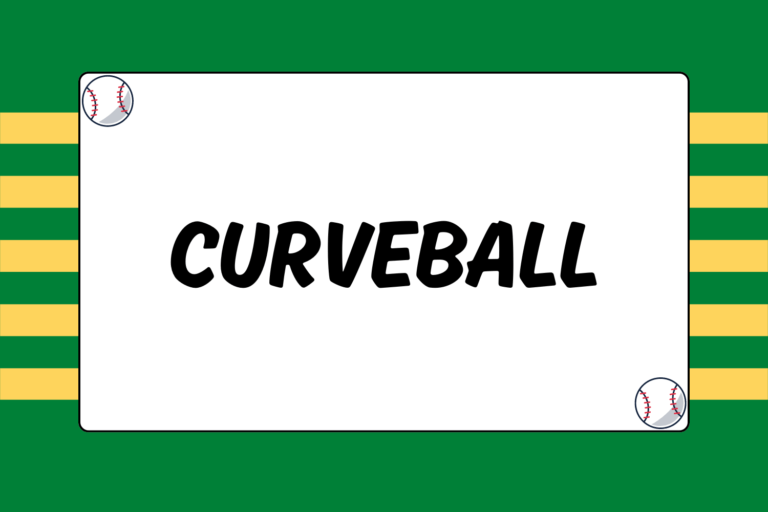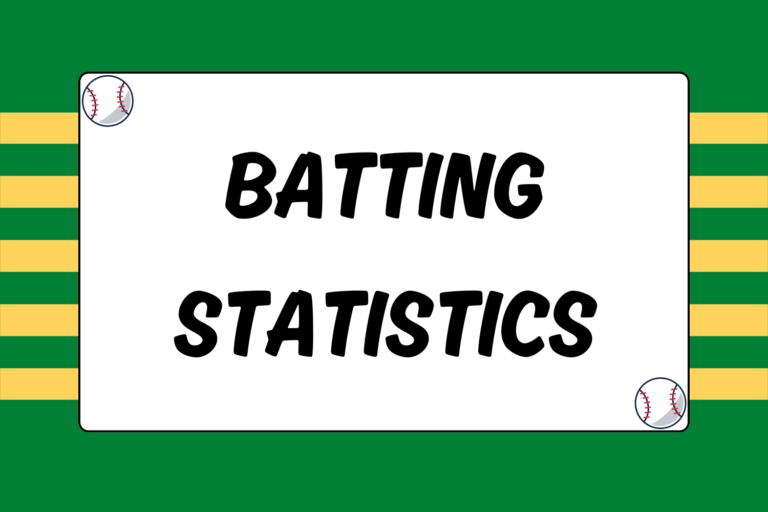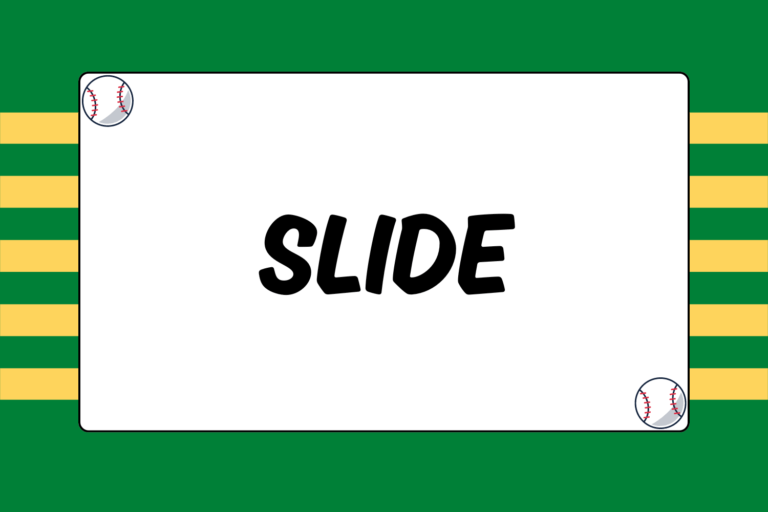So you’ve decided to put a team together? Or maybe you already have a team, and you’re looking for ideas on where it can improve? Well you’ve come to the right place. Sure, every team wants a lineup full of home run hitters and run producers, but it rarely works out that way. Most of the time, teams are made up of players with varying talent levels and different skill sets.
One thing that makes a good coach is the ability to construct a cohesive unit from even the most random group of players. And if you’re looking for a place to start, this guide details the various roles and specific features that make up a great baseball team. If you want to win games and you don’t have nine reincarnations of Lou Gehrig, here are some qualities to aim for.
Offense
Many baseball purists would argue that pitching and defense wins championships. This may be true, but it’s impossible to win if you don’t score, and the vast majority of pitchers prefer to pitch with a lead. It’s vital to have an offense that can score early and often to put pressure on your opponents.
Speed
As any scout would be quick to point out, you can’t teach speed. Sure without speed you can choose to abandon stolen bases and try to construct a team that drives the ball and handles the bat, and maybe that will work. However, you’d be amazed how many extra runs come about from having a few guys who can beat out an infield hit, go first-to-third, score from both first and second, and swipe an occasional bag. Players like that put pressure on the defense, and they draw pitchers’ attention on the bases.
Situational Hitters
This is a skill that everyone on a team can possess. The ability to move runners, execute a hit-and-run, hit a sacrifice fly, and use the opposite field is something that will pay dividends in virtually every game. Making productive outs is a way to help a team win whether you’re Willie Mays or Mario Mendoza.
Clutch Hitters
The flip side, however, is that you can’t win many games with sacrifices alone. It’s great to have table setters, but every team needs a few reliable clutch hitters. Guys who extend innings, drive in runs with two outs, and have their best at bats when the game is on the line are the guys you want anchoring your lineup.
Bunters
Some teams bunt more than others, and a few are successful without bunting at all. But at most levels of the game, bunting is an important part of the offense, so every team needs at least a few guys who can consistently get a bunt down. There are few things more frustrating than when your hitters are unable to execute when you’re trying to give away an out.
Power
Like speed, you can’t really teach power, but it’s a great luxury to have. Now, maybe your team is so great at small ball that you don’t need home runs. And maybe your hitters are so good at getting on base and hitting line drives that you have no problem scoring runs. But most teams occasionally run into situations where they’re having a bad day or the pitching is ineffective. Sometimes you need a three-run home run, and it’s really nice to have a few guys who can deliver a big fly every now and then.
On-Base Percentage
The ability to get on base is the one skill that can potentially allow you to succeed without excelling in any of the above areas. Scoring runs and winning games on offense is about being relentless. Ideally, you want hitters who not only can get hits, draw walks, and work counts consistently, but who battle and refuse to get beaten. The best teams are the ones that allow no easy innings for opposing pitchers, that never ease up, that constantly put pressure on the pitchers and the defense. And this doesn’t require a particularly high level of talent, it’s all about an attitude and preparation.
Pitching
In order for a pitching staff to be successful, you need some diversity among your arms, and there are several roles that you have to find a way to fill.
Fun Fact
The 1927 Yankees are considered by many to be the greatest baseball team ever, accumulating a body of work that has since been unmatched. New York finished 110-44 (good for a .714 winning percentage), outpacing second-place Philadelphia by 19 games before sweeping Pittsburgh in 4 games to win the World Series.
The Bronx Bombers outscored their opponents by nearly 400 runs, thanks to a staggering .307 team batting average. This offensive Juggernaut was led by Babe Ruth, who set a Major League record with 60 home runs, and Lou Gehrig, who led baseball with 175 RBI. Their pitching wasn’t shabby either, as the Yankees boasted 4 hurlers with at least 18 victories, as well as a 3.20 collective team ERA.
Ace
Every team has a best pitcher, but not every team has an ace. Another term to use here would be “stopper,” because the ace is the guy who stops losing streaks. You can win with a group of good pitchers and no true ace, but it’s tough to be a championship team without having an ace. He’s not necessarily the pitcher with the fastest fastball or the nastiest stuff, but he is your most reliable guy.
Your ace isn’t prone to occasional wildness. Your ace is the guy for whom everyone wants to play defense and score runs. He battles through games when he doesn’t have his best stuff, and your ace always, always gives you a chance to win.
Durable Arms
Particularly if your team plays a lot of games, you’re going to have to use several different pitchers. And an extremely valuable trait to look for in pitchers is durability, guys who have “rubber arms.” It can be so useful to have a pitcher who can close out a game for you after starting a few days before, or a reliever who can go out there two or three or four days in a row and give you quality innings. It’s difficult in today’s game to manage pitch counts with your whole staff. So it’s really nice to have a few pitchers who are always ready to go.
Lefties
Left-handers account for just 10% or so of the population, so the fact is that there are a lot more right handed pitchers than lefties. Hitters are less used to facing lefties, who have different release points and movement. Many left-handed hitters really struggle to pick up the ball against left-handed pitchers. Good lefty starters and southpaws you can use in a relief situation have a great deal of value.
Competitors
A great team has pitchers who are fearless. This means regardless of the situation or who’s batting, your pitchers will challenge hitters and attack the strike zone. Good competitors are pitchers who make quality pitches in big situations and aren’t afraid to pitch to contact. It’s very difficult to win without at least a few pitchers who always compete.
Strike Throwers
This goes along with competitors, because a good pitching staff is not only willing to attack the strike zone, but able to do so consistently. It’s so frustrating for a coach when the pitchers nibble, walk guys, and run up pitch counts. Every team needs some pitchers they can rely on to always be around the plate, get ahead in counts, and avoid big innings by limiting walks. As a coach, having strike throwers will add years to your life.
Now you may look at the above criteria and think, “yeah it’d be great to have all those things, but I can’t put together a staff full of Greg Maddux’s.” This is absolutely true. Some teams only have one or a couple pitchers that are reliable competitors and strike throwers. But the point of this list is to at least make you aware that getting pitching talent isn’t always about velocity, stuff, or potential. You also need pitchers to fill different roles on the team, and most importantly you need guys who have the mental make-up to battle through games.
Defense
A great defense team is easily measured; the fewer outs you give away, the better your chances of winning. There are a few aspects of your defense will be partcularly important success.
Great up the Middle
The middle refers to your catcher, shortstop, second baseman, and centerfielder. Obviously you want good defenders in as many positions as possible, but it’s especially important to be solid up the middle. This is partly because those are the positions that have the most opportunity to make mistakes, but they’re also the positions that can make up for shakiness elsewhere on the field if they’re good enough.
Catcher
The catcher deserves his own mention because it is by far the most important defensive position on the field. Even if you remove the responsibility of calling pitches, your catcher’s reliability will go a long way towards determining your team’s success. Good catchers need to be able to throw quickly and accurately to deter the running game. They need to be able to field bunts, catch pop-ups, play quarterback for the infielders, and most importantly, block balls in the dirt. It’s nearly impossible to be a great team without having a good catcher, because catchers can save or cost you a lot of runs.
Versatility
Even in college and the pros, but especially in lower levels of baseball, you’re going to have to get creative sometimes with where guys play on the field. Whether it’s because of injury or if you’re simply trying to get everyone playing time, as a coach you won’t always be able to run the same guys out to the same position.
Therefore, it’s really valuable to have some guys who can play multiple positions. A guy who can play anywhere on the infield, a catcher that can hold his own in left field, and a first baseman that can move over to third base (just to name a few possibilities) are all going to have a better chance of playing regularly than less versatile defenders.
Routine Plays
Ultimately, the quality of your defense will be paramount in determining the success of your pitchers, and your ability to prevent runs in general. As such, it is vital that you stock your defense with as many players as possible who can be counted upon to make routine plays. Forget about “web gems” or who the best athletes are. Nothing kills momentum more quickly than giving away easy outs. However, if you have guys who make the routine plays on a consistent basis, then your team will always have a chance.
Coaching/Philosophy
Whether it’s intentional or not, your mentality as a coach will permeate to your entire team, and so it’s vital you surround yourself with people who buy into your philosophy and complement your style.
Assistant Coaches
An extremely important element of your team’s success is the coaching staff. Most importantly, as a head coach, you want coaches who are on the same page as you, but may sometimes see things differently and make you aware of anything you might miss. It’s also important to find coaches that not only know their craft, but are able to relate to players and convey information in a way that actually translates to improvement. It’s a separate skill than straight baseball knowledge, and not everyone has it.
Character Leaders
Every great team also needs player leadership, one or even a few experienced guys that everyone else respects. Your leaders may or may not be the most talented or productive players, but their most important quality is their character. You need leaders who play the game the right way, who set an example with their hustle and work ethic, and whose desire to succeed instills toughness and competitiveness in the rest of the team.
Unselfishness
Finally, it’s difficult for a team to succeed if the players don’t trust the coaches and each other. The players need to buy into your philosophies and trust that you’ll make the right game decisions. You also need players whose desire for team success is greater than their desire for personal glory.
Sometimes a guy can win a game with a home run, or with a sacrifice fly, or by laying down a bunt, or by taking a base on balls. The best teams find ways to win even when they’re not crushing the ball or shutting down the opponent. The best teams find ways to win because everyone cares more about winning the game than anything else.
No Team is Perfect
The purpose of this guide is not to discourage you by illustrating all the traits your team may be missing; few teams at any level can satisfy all the above requirements. The purpose instead is to outline all the different roles that a team must strive to fill in order to be great. Ultimately, your team will go as far as the players are willing to push themselves. The desire to win and the willingness to work hard, improve, and make sacrifices will often translate to success on the field no matter what.





